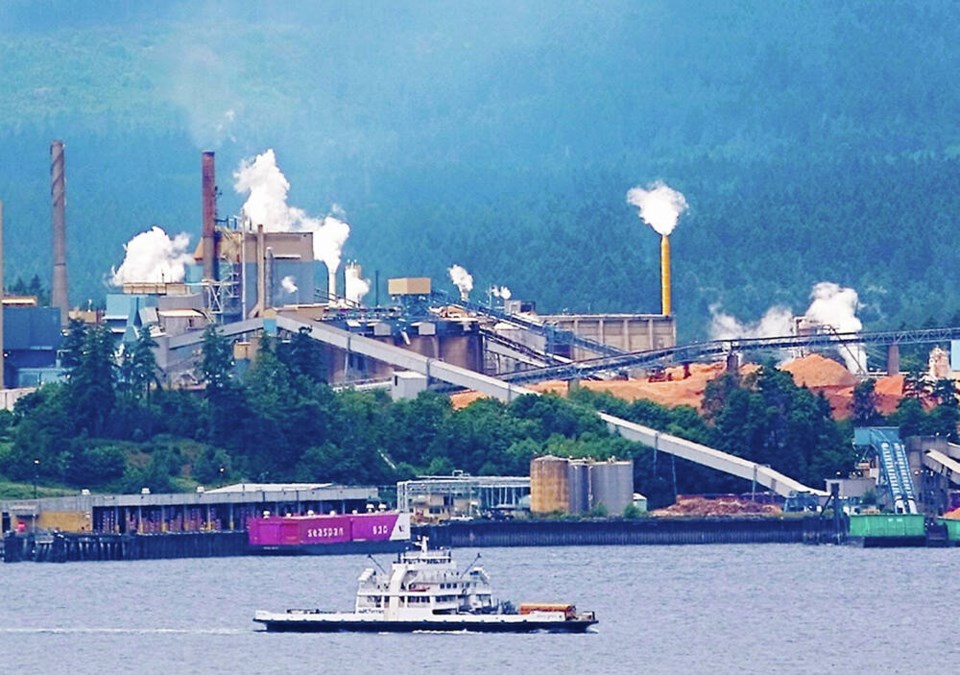A major B.C. pulp and paper mill has been fined $25,500 for discharging more than a million litres of toxic waste into the Pacific Ocean.
The administrative penalty, handed to Catalyst Paper Corporation’s Crofton Mill on Vancouver Island, dates back to the summer of 2021, when it was found responsible for six failures to comply with its permit under the Environmental Management Act.
The mill normally employs roughly 500 people, but since June 30, 2023, the company has curtailed its operations due to what it says are poor market conditions and cost pressures.
Catalyst is wholly owned by Paper Excellence, which as Canada's largest forestry company, manages over 22 million hectares of Canadian forests and controls dozens of mills across Canada, the United States and France.
Pump failures lead to toxic discharges
To make pulp, the relatively large mill uses high volumes of toxic liquids, such as caustic soda, sodium sulphide and bleaches, according to a final determination handed down last week.
On July 23, 2021, a component on one of the mill’s pumps failed, leading to the discharge of a million litres of effluent, storm and sea water into the ocean. That discharge later led to the death of 90 per cent of rainbow trout in a failed toxicity test.
Inspections concluded that the company had failed to regularly inspect an expansion joint on the pump.
Catalyst disputed its failure to comply with its permits, submitting it could not have predicted the component’s failure.
On Aug. 7, 2021, another pump failed, discharging another 6,000 litres of waste into the ocean. This time all the fish died in the acute toxicity test.
Once again, Catalyst disputed the failure to comply, blaming its tenant.
“I find that Catalyst has failed to provide any evidence to support these assertions and I attribute little weight to them,” wrote Environmental Management Act director Jason Bourgeois in his Jan. 9, 2024, decision.
‘Major’ failure posed high threat to environment
Despite the large July discharge of toxic effluent, the company submitted that the nature of the contraventions should be regarded as “medium” because “neither discharge is understood to have caused a sustained impact to the environment.”
Bourgeois disagreed, determining both discharges “have the potential to be threatening to animal health” and that the nature of the first failure should be considered “major.”
“I am convinced that these two acutely toxic discharges pose a high potential threat to the environment,” he wrote.
Catalyst submitted that in the years leading up to the failures, it had spent $157,644 on pump inspections and maintenance.
Catalyst disagreed with the Ministry of Environment and Climate Change that it failed to regularly inspect the pumps and maintain them in good working order. The subsidiary of Paper Excellence said it should be given “considerable credit for the significant efforts to manage stormwater and effluent.”
Catalyst submitted it was “duly diligent” and that “neither of the 2021 events were reasonably foreseeable.”
“I disagree,” wrote Bourgeois.
In 2022, the company was initially handed penalties of $40,000 and $17,000, but in his ruling, Bourgeois consolidated the penalties into a single $30,000 fine.
Bourgeois reduced that total by another $4,500 after he determined Catalyst acted reasonably quickly when it used a diesel pump to stop the August 2021 discharge within an hour. He also found Catalyst had taken appropriate steps to prevent a repeat of the failures.




